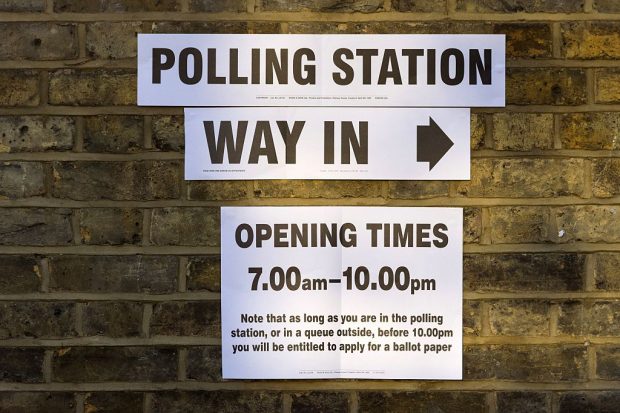The amount of money traded on AJ Bell’s Youinvest platform on Monday was almost double the usual levels as investors sought to position their portfolios in advance of the vote. The majority of trades were purchases rather than sales. However, AJ Bell thinks this volume will increase dramatically on Friday, particularly if the vote is for a Brexit which would be likely to cause more chaos than a Remain vote.
Russ Mould, investment director at AJ Bell, said: ‘There is no doubt that the referendum vote is going to cause a spike in trading volumes either way but a Brexit vote could cause an unprecedented dealing day on Friday. Our systems are tested regularly to ensure they can handle a spike in volumes but it is not just stockbroker services where blockages can occur. Market makers could buckle under the load, which will cause delays for everyone, and trading could even be suspended if the market goes into free fall.’
Pension woes The Telegraph reports that tens of thousands of housewives are about to receive letters from the Government warning that they will not qualify for the new state pension because they have not worked for long enough. The Department for Work and Pensions is sending more than 100,000 people within nine years of state pension age the letters, which will inform them that they will not receive a single penny under the new system. Older women who took on traditional roles in the home, or took extended periods of time off work to raise children, are most likely to lose out as a result of the new rules. A rule imposed in April means people need at least ten years of National Insurance contributions in order to start qualifying for the pension. MPs on the Work and Pensions Select Committee had complained that many would have been unaware of the change. Teenage kicksIt’s not surprising to learn that teenagers cost money. But did you know how much? According to the comparison site GoCompare.com Energy, parents living with teenagers pay £2,916 per year more than those in households without teenage children. The highest cost hikes were to the food bill, although petrol, utilities and TV and broadband charges all increased for those with teenagers in the property.
GoCompare.com Energy polled 1,844 Britons, half of whom were parents of teenagers that lived with them and half of whom did not live with any teenagers. In order to make this as equal as possible, all respondents came from households of four people.
Both groups were provided with a list of household costs, and asked to estimate how much bill-payers were charged for each per month. It was revealed that the average household without a teenager pays out £578 per month on food, petrol, utilities and TV and broadband, while the households with youngsters aged 13 to 19 were higher on every count, equating to £821.
Airfares The boss of Britain’s biggest airline has accused Heathrow of ‘ripping off’ passengers with plans for a new runway when it could save billions of pounds by doubling the length of an existing one, The Times reports. Willie Walsh, chief executive of British Airways’ parent company, called for an extension to the airport’s northern runway — rather than a third runway costing almost £18 billion — saying that it was the only way to create extra capacity at Heathrow without vastly inflating costs for travellers and driving away airlines. A new north-western runway at Heathrow is likely to cost about £17.6 billion and landing charges will be raised to cover the ‘exorbitant’ bill, he said. Walsh has claimed that the present charge of £40 for a return trip would double to £80 per passenger with a new runway, although the airport says that the rise will be nearer to £8. Motorists Drivers will be feeling the heat as competition among motor insurance providers looks set to buck the seasonal trend by decreasing premium prices rather than rising this summer, according to the latest findings from comparethemarket.com’s motor insurance index, Premium Drivers. The percentage difference between the cheapest and average premiums available on the market – the savings variable – hit 17.1 per cent in May, outstripping the figure of 16.5 per cent seen in December 2015, and marking the greatest gap since December 2013, nearly two and half years ago. Energy market investigation The total cost of a two-year competition investigation into the British energy market could exceed £80 million, according to industry officials. The Competition and Markets Authority (CMA) is set to publish its final 500-page report tomorrow, bringing a formal end to a detailed study of the energy market that began two years ago. The CMA says that the project has cost it about £5 million, including about £440,000 in fees paid to lawyers and external advisers. However, the total cost to the industry, including the six big energy suppliers and their rivals, is believed to be far higher, with the bulk of this ultimately met by consumers through their energy bills. Steve Smith, a former Ofgem board member who is now director for competition and regulatory strategy at Lloyds Bank, told Today on BBC Radio 4 that the biggest problem the CMA has found is with the energy regulator itself. He reckons a ‘big win’ from the CMA investigation would be the sweeping away of some of the Ofgem rules. ‘What we need to do is make sure we don’t get Ofgem’s rules replaced by some more silly rules by the CMA.’ Finally… With photos of mug-logged would-be revellers at Glastonbury splashed across the papers, new research from American Express has found Britons will spend an average of £419 on tickets to attend festivals or events over the next 12 months.





Comments